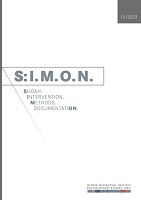Toward an Economic History of Holocaust Memory Two Cases from Post-War Austria
Toward an Economic History of Holocaust Memory Two Cases from Post-War Austria
Author(s): Ari JoskowiczSubject(s): Economic history, Political history, Social history, WW II and following years (1940 - 1949), Fascism, Nazism and WW II, History of the Holocaust, Politics of History/Memory
Published by: Wiener Wiesenthal Institut für Holocaust-Studien
Keywords: Holocaust Memory; Funding; Financing; Economics; Exhibitions; Philanthropy; Simon Wiesenthal;
Summary/Abstract: Scholars working in the field of Holocaust Studies rarely centre questions of money in their studies of Holocaust memory and memorialisation. This reticence is understandable given how easily such approaches devolve into cynical and reductionist readings of complex and painful historical phenomena. Yet, it also leaves us without sufficient research tools, and information, about the role that economics has played in creating and sustaining public awareness of the Nazi genocide in the post-World War Two era. This article represents an initial attempt to explore how we might responsibly undertake an economic history of Holocaust memory, focusing on two case studies from post-war Austria. In my discussion of the large “Antifascist Exhibition ‘Niemals vergessen!’” (“Never Forget”) that opened in Vienna in 1946, I suggest that the price people are willing to pay for memory-related activities can help us gauge their affective investment. Turning to the case of Simon Wiesenthal’s fundraising and philanthropic efforts throughout the 1960s, I then illuminate how the very act of fundraising can serve as a communal act of memorialisation.
Journal: S:I.M.O.N. Shoah: Intervention. Methods. Documentation.
- Issue Year: 10/2023
- Issue No: 1
- Page Range: 23-36
- Page Count: 14
- Language: English

